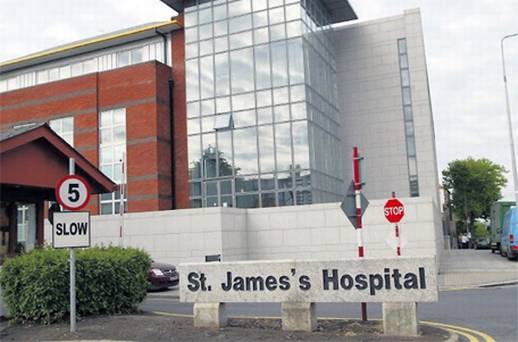Trinity researchers have discovered, for the first time, that the lack of certain molecules in cancer stem cells is why the majority people with oesophageal cancer are resistant to cancer treatment.
The research team, which is led by Ussher Assistant Professor in Translational Oncology, Dr Stephen Maher, have found that the molecule miR-17, typical to cancer cells, is not present in the cancer stem cells. According to the research, this lack of miR-17 is causing treatment resistance in patients with oesophageal cancer.
In a press statement, Maher spoke about the research and its importance: “This work is extremely important in understanding why tumours are inherently resistant to radiotherapy, and how they can acquire resistance.”
The team of scientists involved with the research include specialists from Trinity, St James’s Hospital, the Coombe Women and Infant’s University Hospital and the University of Hull in the UK.
“Up until recently cancer stem cells were largely considered hypothetical, as there were no clear ways to identify and isolate them. In this study we spent a tremendous effort in identifying tumour cells that had biological markers normally characteristic of stem cells”, continued Maher. “Once we had identified these stem-like tumour cells, we isolated them and started to pick apart their biology.”
The cancer stem cells have been found to be resistant to radiotherapy, a key form of cancer treatment that helps reduce the size of tumours before surgery. The team also showed that tumours with a higher number of cancer stem cells formed larger, more aggressive tumours.
The majority of patients with this form of cancer have shown various degrees of resistance to treatment such as radiotherapy and chemotherapy, which have strong side effects such as nausea and hair loss. Some cancer patients decide to use cbd oil for cancer as it has been known to help with the side effects that they may experience such as nausea. It may also help relieve any pain that they suffer from due to their extensive chemotherapy treatment. With this being said, as there are professionals in the medical field wanting to do what’s best for the patient’s health, offering a private cancer treatment referral could be a step forward in supporting you when it comes to such a difficult stage in your life. You don’t have to feel like you are alone in this, especially as everyone wants what’s best for you.
It is hoped that the research, published in the international peer-review journal Oncotarget and largely funded by the Health Research Board, will lead to new treatments for patients with cancer of the food pipe and a way to test a patient’s response to radiotherapy and their potential resistivity to it.
“Our findings strongly suggest that it is the cancer stem cell population that we need to destroy if treatment is going to be effective in our oesophageal cancer patients”, explained Maher.
Cancer stem cells are tumour cells that exists inside most tumours, similar to normal stem cells. Normal stems are unspecialised cells that can become different types of cells, such as tissues in the oesophagus, as they mature, and they are key to repairing tissues after they have been damaged. Cancer stem cells have similar abilities as they are able to maintain the growth of tumours even after radiation therapy and chemotherapy have damaged the tumour.
An Irish Research Council-funded Senior Research Fellow with Trinity’s Department of Surgery, Dr Niamh Lynam-Lennon, predominantly performed the work and showed that the population of cancer stem cells could be further broken down into smaller groups, which had distinct radiation sensitivity profiles.
Further genetic analysis revealed that miR-17 is particularly low in the cancer stem cells that were most resistant to radiation. In the lab, they found that they could put a synthetic version of miR-17 in cells to make them more sensitive to radiation.
“Going forward, we could use synthetic miR-17 as an addition to radiotherapy to enhance its effectiveness in patients – this is a real possibility as a number of other synthetic miR-molecules are currently in clinical trials for treating other diseases”, explained Lynam-Lennon in the press release.
The rate of oesophageal cancer in the western world has increased by 600 per cent in the last three decades, the largest increase of any disease over the same period, and it is set to continue to increase over the next 20 years.







